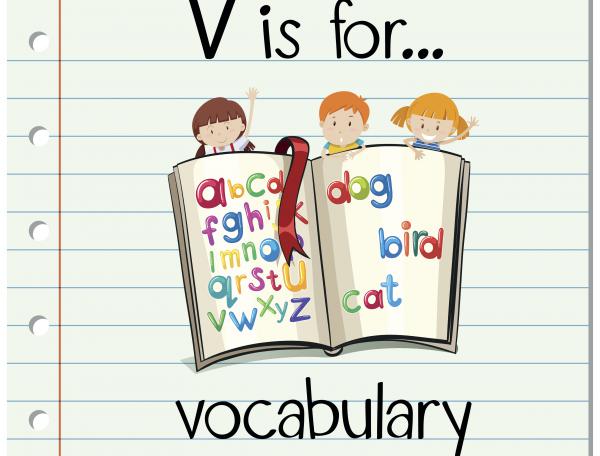Parenting(Age 5 to 8) | Academic | General | Parenting(Age 9 to 12) | Parenting(Age 13 to 16) | Dec 01, 2021
Grow Your Kid’s Vocab Skills with Exposure to New Words

In both personal and professional realms, communication is essential. It is a method of transmitting information, such as messages, thoughts, ideas, and suggestions. Language is a means of communication, and a large vocabulary improves every type of communication. Knowing and acquiring new words can help people gain access to information and improve their communication skills. Listening, reading, speaking, and writing skills all improve when you have a large vocabulary. The foundation of learning a new language, such as English, is vocabulary. Effective communication requires the use of correct, appropriate, and impressive words.
Due to intense competition in academic and professional fields, children need to learn ample words to accomplish their learning goals. An elaborate vocabulary must cover a wide range of contexts.
Right from the early stage developing children’s vocab skills is essential. The more they practice the new words in the language, the more they will improve their language learning and communication skills.
Here are the most useful tips which equip your child with rich vocabulary:
- Develop a reading habit:
A limitless exposure to a wide range of words is the key to improving vocabulary skills. This exposure comes from reading. Storybooks, comics, fiction, and non-fiction books interest children. So, provide different books, topics, newspapers, and magazines that your child loves to read.
It is important to keep a watch on children’s pronunciation while they are reading. Be a reading companion of your child. Read aloud with the correct pronunciation. Although in case of self-doubt parents can also take the help of language apps for correct pronunciation.
- Conversation is the key:
It is important to equip children with immense vocabulary right from the beginning. Creating a constant conversation with children exposes them to different words. In the classroom, language tutors cannot provide undivided attention to every child, so it is important to have quality parent-children interaction for a significant vocabulary.
For small children, parents can include the names of different things, professions, and words that illustrate emotions. Children instantly understand and implicate these words in real life.
- A conscious exposure to words:
Make a separate vocabulary notebook for children. Underline new words and phrases which they read in different articles. Note down the words with their meanings and synonyms. Make children learn those words and also tell them to form their sentences using new words.
Ask children to name a variety of things present in their surroundings. Involve them while enlisting household and grocery items. Having conversations regarding menus, appliances, and different articles at home will help them to develop vocabulary skills.
- Word games and puzzles:
Words games and puzzles are effective and fun ways to learn different words. Games and puzzles make language learning easy and interactive. Children stay motivated and show readiness throughout the activity.
- Writing actively:
Encourage children to write about their favourite topic. It can be about their favourite toy, place, dish, friends, and experiences. Say them to explain the features and experience with the specific thing using new words.
Positively engage your child in writing by giving interesting and exciting topics.
- Narrating story and incidents:
Make children read and listen to stories or news. Motivate them to narrate the same story and piece of information in their language using new words. Assist children to complete the sentences but never interrupt and correct them in between. Appreciate them for their efforts. Enlist tips on paper then politely suggest learners consider these on their next go. Or you can also narrate the same content using different words so that children can learn better.
- Online language skill-developing courses:
Vocabulary is an important aspect of the language development process because it allows youngsters to see the world in new ways. They not only get good academic results, but they also gain self-confidence. Several online language tutoring platforms provide excellent courses taught by native language speakers. Through targeted and engaging language learning sessions, it assists children in expanding their vocabulary. These courses place a strong emphasis on improving vocabulary through regular reading, writing, listening, and conversation practice.
Regardless of the profession you choose, it is critical to improve one's language and vocabulary to succeed academically and professionally. Improving vocabulary skills encourages children to be exploratory, expressive, and creative too. They become cognitively sound and constructive.
















Post a Comment: